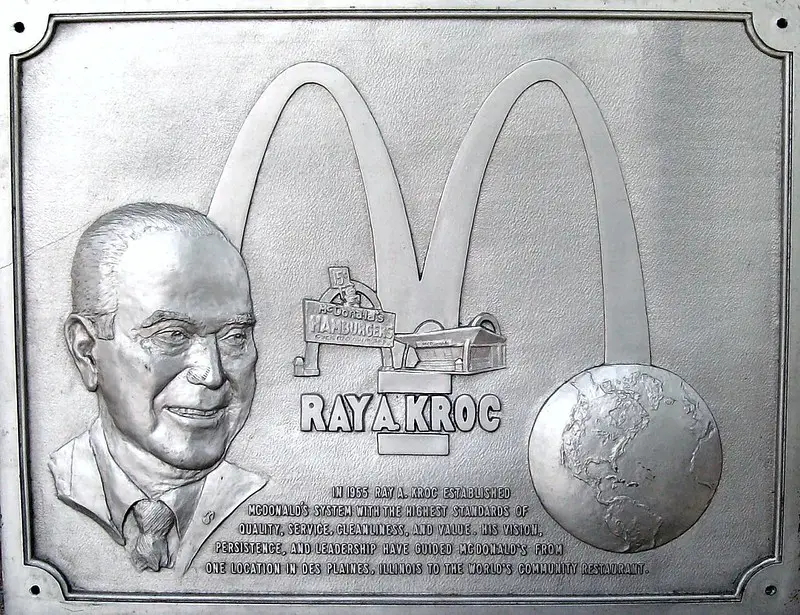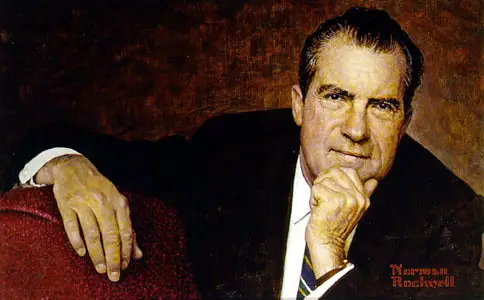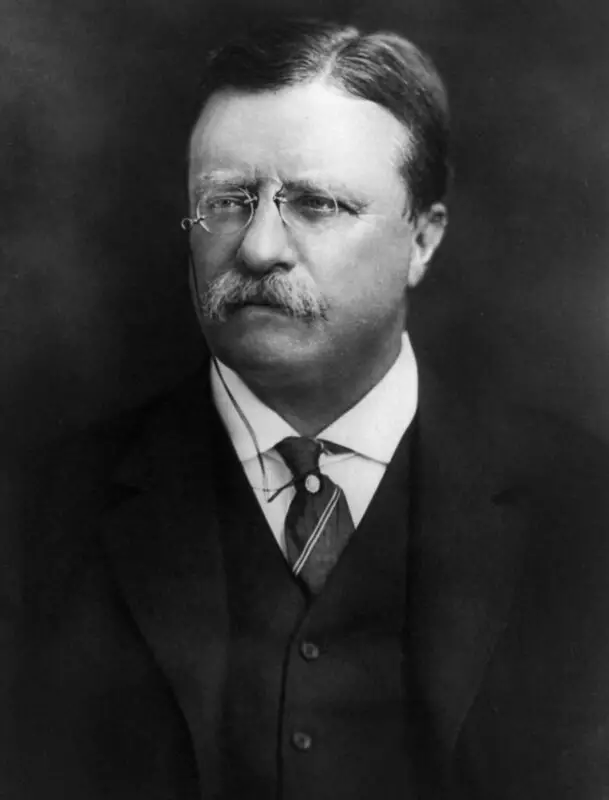Do you see yourself as a born leader? A small number of people do – and for a good motive. Even though you’re a naturally impressive person and have headed up all the group you’ve been in since your kindergarten time, this shows that you’re more dominant than other people. As a matter of fact, nobody is born a leader.
Leadership is an ability and it’s entirely your choice to cultivate it.
It’s mainly about getting people to follow your footsteps– and this book summary will explain how. This book mentions the most essential of the 21 laws of leadership, in which you’ll pick up the characters and skills that will enhance your ability to lead, even though you concentrate on only a few of them.

1 – Quality leadership is the leading factor in business success, and it makes the boss the most accountable.
In this modern world, you find McDonald’s on nearly every corner. However, are you aware of how this behemoth began?
It started during the year 1937, in Pasadena, California, when brothers Dick and Maurice McDonald created a small drive-in restaurant that essentially focused on hot dogs, and not hamburgers. A few years after, they moved to San Bernardino, California, where they restructured their kitchen into a fast-moving queue and added hamburgers to the menu.
The brothers decided to franchise their fast-food idea in 1952, however, they instantly ran into difficulties.
This was as a result of the Law of the Lid which is one of the 21 irrefutable laws of leadership. It states that the potential success of you and your company is restricted by a single quality which is your skill to lead.
This is the reason why the brothers had a problem franchising their business. In spite of being good with customers and possessing innovative ideas, they were terrible inept leaders, which signified that very few franchisees were ready to trust their concept.

This turned out to be more apparent after they had a deal with Ray Kroc to enlarge the business. Kroc a great leader in his own right got to work by solving the seeming difficulties by employing other leaders for all the important positions. Despite the fact that he couldn’t actually afford to pay them, he got personal loans from the bank, collected his life insurance policy and forfeited his own salary for years so that he could get things running well.
The outcomes are obvious. While the McDonald brothers only completed 15 franchise deals on their own, Ray Kroc sealed 100 during his first four years with the company and closely 400 other ones four years after.
The huge significance of the leader also signifies that when an organization is hurting, it’s normal for the leader to take the fall. For example, when the consultants at the advisory firm Global Hospitality Resources are being called in to save a struggling hotel, one of their first solutions is to sack the boss. According to them, it’s clear that, if the hotel had a good leader, it wouldn’t be needing assistance in the first instance.
2 – Great leaders are powerful and instinctive, and they possess a record of previous successes.
The Law of the Lid displays to us that leaders are in a vulnerable place when they don’t work well. Therefore, how can you make sure that this doesn’t occur to you?
Enter the next law –which is the Law of Influence.
If you have to employ someone who has presented former leadership skill, you have to find signs of the most significant skill which the ability to influence others. Rather than only looking for suitable job titles on a CV, search for followers. If a person is a true leader, they should possess a long list of people that they’ve influenced.
Use Mother Teresa as an example: She might have looked small and weak; however, she was a wonderful leader who formed a personal army of followers to assist her further her mission of feeding and helping the poor. Anytime she spoke, people would pause and pay attention because they cherished her impressive ability to lead.
These multitudes of followers and volunteers created her worldwide organization which is the Missionaries of Charity. She even kept gaining followers during a time when most Catholic churches were battling to keep their members.

Therefore, how can you learn to influence people?
You have to demonstrate intuition and concentrate on the intangible factors that can have an effect on your followers.
For instance, you need to be able to notice when one of them is feeling as if they’re being maltreated. With intuition, you can notice increasing tensions and fix problems before they actually begin to harm your business.
Highlighting past successes is another useful way to help improve morale and persuade people to follow your track. It will be very easy to get people motivated and confident that they’re going in the right direction if they can see proof of previous successes instead of a trail of disappointments.
3 – Leaders need to be trustworthy, and trust can be lost when they break the rules they are meant to strengthen.
To see what occurs when leadership collapses, let’s consider the Watergate scandal. During the early 1970s, members of President Nixon’s administration were found guilty of unlawful activities as well as a robbery at the offices of the Democratic National Committee.
Due to this, Nixon lost the trust of the American people and was required to resign.
This takes us to the Law of Solid Ground, which states that leaders need to work on a firm foundation of trust.
After all, people won’t just follow anybody; they want a person they can trust, someone who is trustworthy and treats his followers with honesty, equality and good judgment.
One common way of losing trust is by taking shortcuts instead of going in the right ways. The majority of organizations have rules on how things have to be done, whether it’s promoting or sacking an employee. A leader can seem as being disrespectful if he doesn’t follow these rules.
Leaders are meant to be the ones who enforce the rules and hold other people responsible for following them; hence, if you abruptly decide to take shortcuts, you can end up losing the trust of your whole organization by giving them the impression that you’re above the rules.

This is what caused Nixon’s downfall: by agreeing to something that is illegal, he gave the impression that he is above the rules.
Also, the author provides a personal example. While he was working as a senior pastor at the Skyline Church in San Diego, during one particularly hectic holiday season, he understood that it was important to allow a staff member to go straightaway. The author decided this on his own without talking to the community beforehand about it, although his intents were good, his shortcut disturbed the church congregation, and he had to work very hard to get back their trust.
4 – Leaders can gain respect by being strong, brave and loyal.
The two essential qualities for any leader are Influence and trust; however, it’s also important that a leader enjoys the respect of her followers.
The Law of Respect comes into play when people come across someone with strength, a leader who’s more skilled, strong-minded and brave than they are – the same type of qualities that followers look for in a leader.
An example of a respected leader is Harriet Tubman. He was born a slave in 1820, she ultimately ran away to the free state of Pennsylvania, where she started helping other slaves safely escape by becoming a leader in the Underground Railroad.
With her remarkably strong-will, she was respected by all the people she worked with, particularly the fugitive slaves she helped free by leading them on risky journeys to the North.
The risks that Tubman was ready to take played a huge part in how she got others’ respect. Each time she went to the South to go on another mission, she showed bravery and determination.
She was exposed to failure and death every turn. Every time she freed more slaves, Southerners increased the bounty on her head. However, these threats didn’t discourage Tubman, and people respected her more as she courageously unrelenting went on a total of at least 19 missions.

It’s obvious that Tubman was loyal to her cause which is also a powerful force of respect.
As a leader, you can demonstrate your loyalty by being dedicated to the well-being and goals of your followers.
This is a valued quality, since, nowadays, loyalty can be difficult to get. CEOs, professional athletes, and coaches mostly go wherever the money is. However, such shifting loyalties can cause losing the respect of their followers.
In contrast, leaders get respect by hanging in there when the organization is facing difficulties. This is why great athletes and coaches stay with their team even through a losing streak, and real business leaders will fight to protect the jobs of their followers when the company is going through a rough time.
5 – Leaders entice people who are alike to them.
Now that you have your leadership qualities intact, it’s time to ensure that you have a good team.
Firstly, visualize your ideal team. What type of people do you see?
There’s a good possibility that you see a group of people that are similar to you, in terms of age and background to personality and drive. This is called the Law of Magnetism.
Therefore, if you’re 35 years old, you are more likely to employ a person who’s also in their thirties, instead of someone who’s just 16 or 65 years old.
This law was seen in action during the dot-com explosion of the 1990s when a lot of businesses were created and then staffed by entrepreneurial people who were all in their twenties or thirties.
However, it’s not only age; it’s also personality. If you’re a tidy perfectionist, probabilities are that you won’t want to employ someone who appears untidy and makes a mess of your office, irrespective of how brilliant that person’s résumé is. Rather, you’d possibly select someone who’s meticulous and detail-oriented, just like you.

Theodore Roosevelt also followed the Law of Magnetism when he was employing people to fight in his infantry during the Spanish-American War.
Roosevelt grew up in a rich aristocratic family from the Northeast before relocating west to the Dakotas and living as a cowboy and a hunter. Therefore, during the time war, Teddy recruited people who were from similar backgrounds, leading to a militia of Northeast aristocrats and Western cowboys.
So, bear in mind: a leader’s own traits can form a team or even a whole organization.
Back at the Skyline Church, Dr. Orval Butcher was the author’s predecessor, a great leader and also a great musician. When he recruited new staff for the church, Butcher assembled people similar to himself, and the church went on to be extensively known for its great music.
6 – A victorious leader yearns for success and will produce winning teams with various talents and a shared vision.
Are you a poor loser? If that is the case, don’t feel very bad, because if you want to be a leader, you have to be a poor loser.
Losing and giving up the fight are not valid choices for great leaders; this is known as the Law of Victory.
A good example of this type of leadership is Winston Churchill. During World War II, he rejected to admit defeat even when Nazi Germany was in charge of most of Europe and bombed England.
Even when everything looked lost he kept on looking for ways to win, ultimately joining forces with the United States and leading the Allies to dismantle Hitler’s regime.
Every great leader needs to detest defeat and always endeavor to find winning choices just as Churchill did.

Another secret to being a victorious leader is knowing how to make a winning team that constitutes various talents. A team can’t win if everybody has similar skills, just like how a soccer team who only has goalies won’t be any good at scoring. Hence, successful leaders create teams that consist of people with various skill sets that can face any number of challenges.
However, you have to ensure that these diverse people all have the same vision. Talent can be wasted if everyone concentrates on different things. Winning coaches know the meaning of teamwork and getting their players to concentrate on overall success rather than individual glory. For instance, they ensure that players will pass the ball if a teammate has a better opportunity of scoring a goal.
In the last chapter, we’ll look at the significance of timing and its role in leadership.
7 – A great leader takes the right choice at the appropriate time.
If you’ve ever managed to a garden, you are aware of the significance of planting the seeds at the right time. If it’s too early, the soil might freeze and if it’s very late, you might end having a poor harvest.
It’s the same thing with leadership and the Law of Timing.
If a leader makes the wrong decision at the wrong time, it can mostly lead to a disaster. However, it can be just as terrible to make the right decision at the wrong time.
This is what occurred in 2005 when Hurricane Katrina happened in New Orleans. Mayor Ray Nagin was aware that the right choice was to call for an evacuation, however, he hesitated. Even as the cities around New Orleans gave compulsory orders for people to vacate, it took another half-day for Nagin to make the right decision and changed his call for a voluntary evacuation into a compulsory one.

By then it was already too late for citizens to safely vacate the city, and more people died.
Conversely, successful leaders know the actual time to make the right decision. They are decisive and have the experience to identify when they have to grab an opportunity or avert a catastrophe.
Let’s consider Churchill again. He knew the dangers of Hitler and responded in time to increase the military preparedness of Great Britain, allowing it to continue and ultimately win.
By understanding these vital laws of leadership, you can greatly assist your team to overcome any challenge it may encounter.
The 21 Irrefutable Laws of Leadership: Follow Them and People Will Follow You by John C. Maxwell, Zig Ziglar (Foreword) Book Review
Leaders are reliable and influential people who command respect from those who follow them. To get that type of respect and loyalty, there are specific characters and skills you need to have: You must be influential, strong and trustworthy. Also, you have to be loyal to your followers and chase victory single-mindedly, irrespective of how bad the situation might be.
